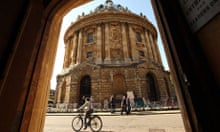How dare India disgrace the Commonwealth? How dare it inflict discomfort and filth on the grandees of international sport? Surely it should have spent billions more rupees, evicted millions more peasants and hired thousands more coolies and child labourers so the Commonwealth Games Federation (CGF) could enjoy a couple of weeks of rah-rah next month on the banks of the great, grey-green, greasy Yamuna river?
Scottish boxers and rugby players are said to be simpering at the prospect of a broken loo. English lawn bowlers are quaking at rolling the bias in malarial swamps. The marble bathrooms are not ready. The VIP tickets are in chaos. The weightlifters' roof has collapsed. (Surely they can lift it back up?) India seems not to realise that sport's aristocrats expect only the best, in return for bestowing on Delhi the accolade of "Games venue".
The most obscene thing about this week's damnation of Delhi is the comparison with Beijing 2008. It persuades me that international sport is nowadays run by nostalgic revivalists of the mad chauvinism of 20th-century totalitarian states. An hour of glory justifies all.
It was in this spirit that the International Olympic Committee encouraged the Chinese before 2008 to spend over $33bn on flattering its members with an array of costly sepulchres, in return for China's admission to "the community of nations", to which the IOC claimed to control entry. Some 1.5 million Beijing citizens were evicted to make way for subsequently useless stadiums, including the celebrated Bird's Nest.
A historic section of the city's remaining hutong area was flattened, protesters were jailed and China's tourism economy was wrecked for a year, a saga catalogued in a report this week from the European Tour Operators Association. It warned against thinking of sports festivals as bonanzas for anyone but building contractors. Similarly the CGF pretended that its Games would bring "hundreds of thousands of tourists" to India. Almost none have materialised.
There was no justification for visiting such destructive extravagance on Beijing, for what was a gesture of political cleansing by the Chinese Communist party. Yet Britain's Gordon Brown and Tessa Jowell lauded the Chinese and invited their thuggish emissaries into Downing Street. All criticism was then deafened by applause for the hour of Nuremburg-style choreography that was the closing ceremony.
Largely on the strength of this ceremony, the media declared Beijing 2008 a success and "worth" the $33bn. Now Britain is being challenged to "top Beijing", and to hell with the cost. Never has the people been dispensed so much opium at its own expense.
That the Commonwealth should be competing in this racket is sad. Just as it tries to rival the G7 and UN in its periodic conferences, so it tries to rival the Olympics in its Games. These staged events are a desperate way of sanitising and clinging to imperial "meaning". In a recent survey of member states, only a third of respondents could say what the Commonwealth was, and of those a half associated it only with the Games. It is as if the Roman empire were remembered only for antics in the Colosseum.
Initial responsibility for this Delhi debacle clearly rests on the Indian authorities, but only initially. In their desperation to rival the Olympics, and presumably to dust themselves in ethnic diversity, the CGF rejected Canada's bid back in 2003 and went for India. It knew the risk it was taking. It knew the budget of $1.5bn would become $2.5bn and rising, more than twice that of the previous Games in Melbourne in 2006. There are now reports of $3.8bn being spent, by hook and by crook.
Anyone who knows Delhi or other big Indian cities could have told the CGF that, when it comes to corruption, Indian planners and contractors win all gold medals going. Every contract was likely to be dodgy, every corner cut, every utility inadequate. This was plain years ago. Harping on about India's booming economy means nothing in the desperate slum suburbs of Delhi. No conceivable priority requires them to be torn apart to provide a temporary playspace for high-living foreign athletes and their VIP retinues.
The truth is that international sport has become so bloated by national pride and celebrity as to lose all sense of proportion. The Geneva centre of housing rights and evictions reckons sport to be one of the biggest displacers of humanity, perhaps second only to war. In two decades some 2 million people have had to make way for Olympic stadiums and "villages".
At Stratford and other 2012 venues, London will shortly show the world how to blow £9.3bn on a similar two-week festival – that is over half the entire $25bn budget offered by this week's United Nations conference to combat world poverty over five years. The difference is that, on past form, the UN's $25bn will not be spent, while sports money is always more than spent because prestige attaches to sport and not to charity.
A former Games participant, Matthew Syed, claimed this week in the Times that the "rapture" of a squash quarter-final he witnessed at the Melbourne Games was so great as to justify the expense. But who says so? There is now what amounts to a cartel of architects, building contractors, security consultants and publicists, practised at holding to ransom cities who find themselves hosting summit conferences and sports extravaganzas. They constitute what was recently described in the Times of India as a "lootfest".
Each gold medal Britain won in the Beijing Olympics reportedly cost the taxpayer £12m. There can be no other state activity that dares such presumption. No arts activity, no theatre or rock festival, no adventure project or charitable fund-raiser would demand such colossal subsidy. The nearest parallel in cost per week is probably the military invasion of a foreign state, on which the last Labour governments were equally keen.
Even in the present climate, when the arts (and ordinary sport) must accept a 25% cut in grant, the chancellor, George Osborne, is authorising £308m of public money to be spent on an Olympics media centre at Stratford, to be used for just two weeks and then demolished. Such waste is indefensible: let journalists use televisions and laptops.
I am sure British athletes will go to Delhi in some order, since the one thing they crave more than a marble bathroom is a medal. There will be much booking of hotel rooms and talk of make-do and mend. The "spirit of sport" will triumph and the Games declared a success.
The truth is that money spent on chauvinism is money freed of reason and accountability. It is laundered by association with glory. Commonwealth officials must have better things to do than taxing Delhi's citizens to the tune of $3bn, knowing that the outcome will be their humiliation. They may take pleasure staging their parade in the land of the white elephant, but this is surely no way to honour the British empire.

